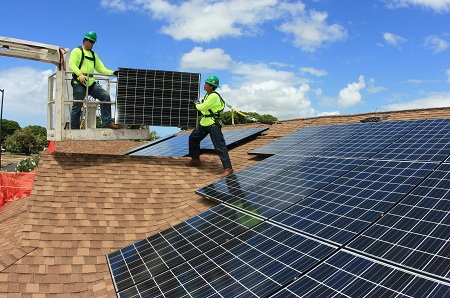The ticking clock – and fallout from the Solyndra bankruptcy – appears to have claimed another loan-guarantee victim. SolarCity said the U.S. Department of Energy (DOE) told it that a $275 million guarantee conditionally granted just two weeks ago would not close before the federal loan program is required to wrap up work on Sept. 30. The money was to have gone toward a huge project, called SolarStrong, to install rooftop systems on privatized residences and other buildings on U.S. military bases.
Word of the SolarStrong financing failure came one day after First Solar’s 550-megawatt Topaz solar project – in line for nearly $2 billlion in government-backed financing – suffered a similar fate, and amid intense scrutiny of the loan program’s approval process in the wake of the Solyndra bankruptcy, which some worry could result in a significant loss of taxpayer money.

In a letter to key Congressional committee leaders requesting an extension of the Sept. 30 deadline, SolarCity CEO Lyndon Rive said the DOE informed the company the reason the SolarStrong guarantee would not go through “was the increased documentation requirements that are the result of the current congressional investigation into the Solyndra bankruptcy.” (Southern California Public Radio has posted a PDF of the letter, accompanying its SolarStrong story.)
Rive went on to ask that Congress “extend the statutory deadline for final clearance of the remaining Section 1705 conditional commitments, as suggested in the committee’s September 20 letter to Secretary Chu.”
In that letter [PDF], Committee on Energy and Commerce leaders expressed concern, as they had before, “that another rush to meet stimulus deadlines will result in DOE closing (outstanding) deals before they are ready.” The committee went on to ask what authority DOE might have or need in order to extend the deadline for closing deals.
Though they did not explicitly request the DOE extend the deadline, the Republican leaders, surprisingly, sounded as though they did not want to see the remaining loan guarantees die. “We are sensitive to the concerns of private companies that have applied for these loan guarantees and may have been given assurances by DOE that they will close,” the leaders wrote. “We also do not want anything to stand in the way of private-sector job creation.”
In his own letter, SolarCity’s Rive emphasized the jobs that were at stake with SolarStrong, “many of which would have gone to veterans and the family members of our active duty military servicemen and women,” he said. He also said SolarStrong “sharply contrasts with Solyndra in every regard concerning risk and cost to government,” noting, among other things, that the company has “very predictable cash flows based on long term contracts”; that it “uses proven technology”; and that the loan being guaranteed would come from private sources and represented just one-quarter of the total project cost.